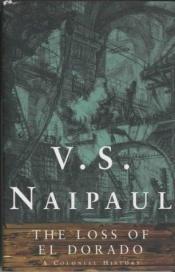The Loss of El Dorado
Resumen
The Loss of El Dorado, by the Nobel Prize winner V. S. Naipaul, is a history book about Venezuela and Trinidad. It was published in 1969. The title refers to the El Dorado legend.Naipaul looks at the Spanish/British colonial rivalry in the Orinoco basin, drawing on contemporary sources written in Spanish and English. The book examines the obsessive quest for gold which was typical of the first Europeans to explore the region. In particular, Sir Walter Raleigh's voyages are examined with a psychological depth more typical of novels than historical works.
In the second half of the book, the focus shifts to Trinidad around the beginning of the nineteenth century under British colonial rule. Naipaul gives a lot of attention to the circumstances surrounding the trial of Sir Thomas Picton for torture, but he also looks at Venezuela's struggle for independence from Spain.
Like most of Naipaul's work, "The Loss of El Dorado" has received considerable critical recognition. On publication its admirers included the Cambridge historian John H. Plumb. However, the author has confessed to not being completely happy with his book.

 Español
Español English
English Deutsch
Deutsch










Reseñas de los usuarias/os Escribe tu propia reseña
Sé el/la primera/o en reseñar
Log inir al comentario